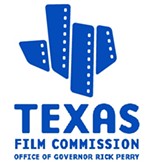Austin Considers Film Incentives
Localized subsidies proposed to fight off in-state competition
By Richard Whittaker, 9:00AM, Tue. Apr. 22, 2014
Texas has economic incentives to encourage film, TV and video game projects to move to the Lone Star State. Last Thursday, staff from Austin's Economic Development Department briefed council on their plans for a Creative Content Incentive Program as a way to keep that new production within city limits.
There's already a statewide incentive system, the Texas Moving Image Industry Incentive Program. Often thought of and referred to as film incentives, TV, video and gaming companies are also eligible to apply for the program. It's been of particular assistance to Austin, which combines a big gaming industry with the state's leading film production hub. City Economic Growth Redevelopment Services Office Deputy Director Rodney Gonzales noted that film and game production is a $1.3 billion industry in the Austin area "and we think it's imperative to stay on the cutting edge."
The proposal is for a new local program to supplement the state cash. Eligible projects must already be certified for a Texas Moving Image Incentive Program grant, and be primarily shot in the city's Desired Development Zone. Productions must pay at least union minimum wages for film, TV and commercial projects (plus workers comp and partner benefits) and a minimum $11 per hour for the video game and visual effects industry (plus health insurance benefits). In return, the city would grant 0.5% of wages paid to cast and crew, with an extra 0.25% for projects that either are made by an Austin-based production company, or that "significantly promote Austin." The project would cap out at an annual total of $250,000. Austin Film Commission director of film marketing Gary Bond said, "It's not a huge bunch of money, but it would be a little bit groundbreaking for the city."
This would be the city's first incentive program (previously there was a one-off deal for Friday Night Lights, but nothing systematic). Austin has always tried to package itself as a film-friendly environment. Austin Studios sits on city land and is paid for in part by city bond money (in fact, on Thursday's agenda there was a separate item releasing the first $2 million of the $5.4 million approved by voters in 2012 for the renovation of the former National Guard Armory as a new cultural hub). Then there are softer incentives, such as no-fee permits for filming in right-of-ways or on city property, plus the provision of one or two police officers during filming for up to 15 days. Then there's the Austin Film Commission itself, which is an invaluable information resource to film makers, both locals trying to get a production up and running, or out-of-town teams looking for a location.
There's a rub. Texas' incentives are among the lowest in the nation (5% to 22.5% compared to 30% in Louisiana), but that's at least been enough to buy the Lone Star State a seat at the table. The real issue here is not competition with other states, but with other cities in Texas.
It starts with the state program. Since most of the production in the state happens in Austin and Dallas, cities such as Houston and El Paso are classified as underutilized areas, and get an extra 2.5% incentive. However, with some careful negotiation, Austin's economically distressed areas (where median household income is less than 75% of the state average) are also eligible for that boost.
Austin still has a head start over most other Texas cities, due to its availability of studio space and technical expertise, plus the big talent pool coming out of UT Austin's film program. However, finances often pull productions away (for example, director Roman Waugh was forced to relocate the Austin-shot Snitch, starring Dwayne "The Rock" Johnson, to Louisiana for shooting because of incentives.) Noting that a level playing field would inevitably lean towards Austin, EGRSO Global Business Recruitment and Expansion Coordinator Natalie Betts said that even with this new program "we'd still be below other states … but every little bit of incentive helps."
There are already localized incentives in Texas. San Antonio has the Supplemental San Antonio Film Incentive Program, which will give an extra 2.5% to projects that already receive Texas Moving Image Industry Incentive Program cash and shoot at least 80% of their production days within San Antonio city limits. Bond said, "The Austin city formula is a little more complicated, because it's based on local hires."
There's still some finessing to do before the matter comes back before Council on May 15. Mayor Lee Leffingwell was worried about the vagueness of the language about promoting Austin (specters, for those that remember the fuss about Machete and Machete Kills, of the state's restrictions on making Texas look bad) and Gonzales said his team would look at the comparable Made in New York program.
However, the question that's posed with every incentive program quickly came up: "Are we giving away money when companies would come here anyway?" asked Council Member Chris Riley. Gonzales insisted that the deal would be revenue positive, as it would both induce new production into coming and keep existing companies here, with a .75 cent boost to city coffers for every dollar spent on local wages. However, Council Member Bill Spelman questioned, with an Austin-promoting project getting 0.75% of their wages back, whether the end result would be closer to revenue neutral.
He also wondered about whether promoting Austin might lead to more people moving here, while Council Member Tovo was worried about the additional policing costs of attracting more production. On top of that, Council Member Mike Martinez raised the question of ensuring minority- and women-owned business incentives, and suggested at least monitoring MBE-WBE participation over the first six months. His interest was most pointedly in construction, but as Gonzales noted, it seems unlikely that productions will want to go through a list of 50 eligible contractors just to get a set wall repainted.
A note to readers: Bold and uncensored, The Austin Chronicle has been Austin’s independent news source for over 40 years, expressing the community’s political and environmental concerns and supporting its active cultural scene. Now more than ever, we need your support to continue supplying Austin with independent, free press. If real news is important to you, please consider making a donation of $5, $10 or whatever you can afford, to help keep our journalism on stands.
Richard Whittaker, May 25, 2017
Richard Whittaker, June 22, 2016
Richard Whittaker, March 19, 2014
Richard Whittaker, July 6, 2012
April 20, 2024
April 19, 2024
Texas Moving Image Industry Incentive Program, Texas Film Commission, Austin City Council, Austin Studios, Austin Film Commission, Gary Bond, Machete, Machete Kills, Mike Martinez, Bill Spelman, Lee Leffingwell, Kathie Tovo, Rodney Gonzales, Natalie Betts, Supplemental San Antonio Film Incentive Program













